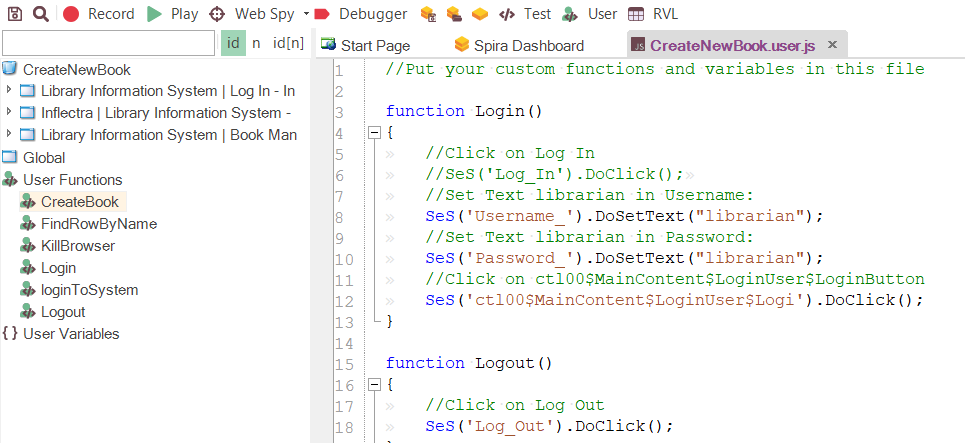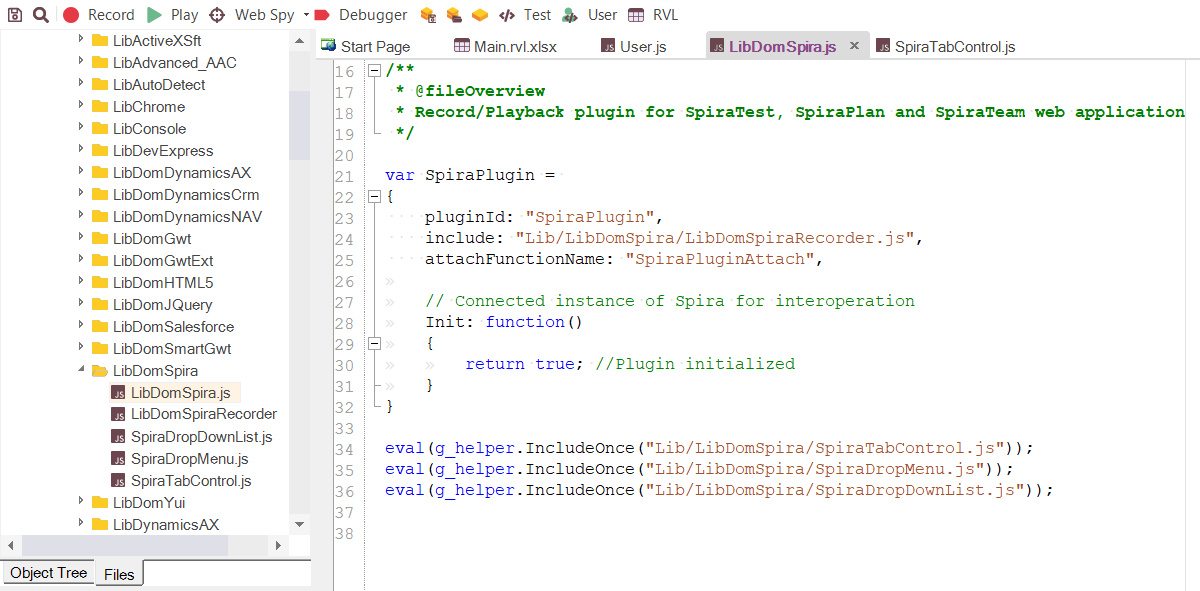Extensible Scripting Engine
The core scripting engine used in Rapise is based on JavaScript and it can be easily extended to use third party JavaScript libraries and frameworks. In addition you extend the core testing engine used by Rapise to include additional test libraries, validation frameworks and reporting options.
Write User Functions and JavaScript Modules
You can write user functions and define modules in JavaScript that can then be called by either other JavaScript test cases or more often from test cases written in the easy-to-use Rapise Visual Language.
This lets you encapsulate testing logic in specific functions that can then be used by your test analysts to perform specific tasks or verifications during an end-to-end test scenario.
Customizable Testing Engine
The source for most of the Rapise implementation is available for you to read and modify. You may find it useful to look at if you decide to create a library customized for your application or wish to extend the testing platform to meet your needs.
Using External JavaScript Libraries
Since Rapise uses standard JavaScript instead of a proprietary language, you can simply include other JavaScript libraries to perform specific testing tasks:
function Test()
{
eval(g_helper.Include(Global.GetFullPath("myfunctions.js")));
}
Or you may install NPM modules and use them like:
function GetOTP()
{
const deasync = require("deasync");
const { URL } = require('url');
const sharp = require("sharp");
const jsQR = require("jsqr");
const { authenticator } = require("otplib");
…
}
This extensibility means that you can use any JavaScript library to provide additional testing, reporting or analysis to your testing activities.
Using External Components
Microsoft's Component Object Model (COM) is a standard for communication between separately engineered software components (source). Any object with a COM interface can be created and used remotely:
var doc = new ActiveXObject("Word.Application");
doc.Documents.Open(wordFileName);
Using this approach, any external Dynamic Linked Libraries (DLLs) can be involved to expand the testing capabilities of Rapise. Rapise has built in support for both types of DLLs:
- Managed DLLs – written using the .NET Framework, Rapise provides special API classes for accessing.
- Unmanaged DLLs – written using native Intel x86 code, Rapise provides a special DynamicWrapper than makes it easy to access these libraries
Try Rapise free for 30 days, no credit cards, no contracts
Start My Free TrialAnd if you have any questions, please email or call us at +1 (202) 558-6885

